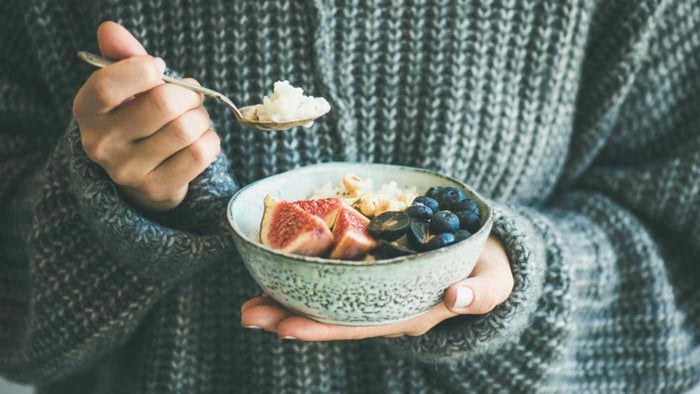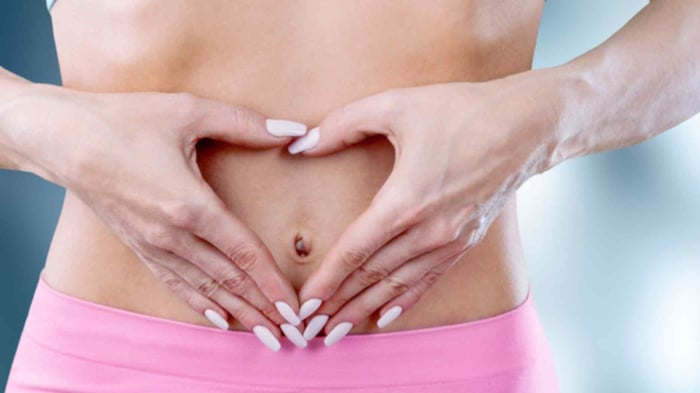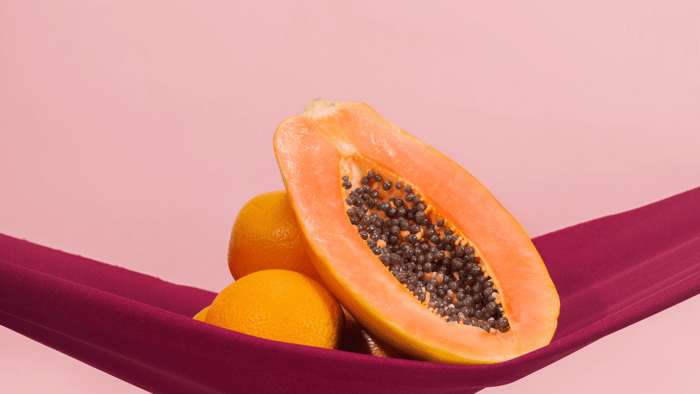By Hannah Kohut

We hear a lot about antioxidants and the seemingly endless list of conditions they can help treat, but there’s one that you may not have heard of. It’s called rutin, and its health benefits are incredible.
In this article, we tell you what rutin is, how to get rutin in your diet, and share more than a dozen health issues it can help treat. The power of this plant-based antioxidant just might astound you.
What is Rutin?
Let’s preface this by saying you should seriously check out rutin. In doing research, our minds were blown with how many health conditions rutin has been lab-proven to treat.
Rutin is a bioflavonoid. Bioflavonoids come from plants, fruits, and vegetables that are high in Vitamin C. Because of that, bioflavonoids are great for your immune system.
Specifically, rutin is a powerful bioflavonoid antioxidant (also known as Vitamin P) that comes from a variety of foods like apples, figs, and buckwheat. Like all antioxidants, rutin helps defend your immune system by protecting against cellular damage from free radicals, which cause DNA damage and can lead to diseases and even cancers.
Rutin became a hot topic during the COVID pandemic, as it was found to be potentially effective in fighting off the COVID virus because of its ability to keep viruses from replicating in our bodies.
What makes rutin stand out in particular, however, is its power to help fend off serious illnesses and diseases like cancer, Alzheimer’s, Parkinson’s disease, heart disease, and more. Before we get into that, let’s learn more about where we can find rutin.
Where Does Rutin Come From?

Rutin comes from foods high in Vitamin C. You may assume that only means fruits and some vegetables, but you may be surprised to find out that Vitamin C (and rutin) can also come from buckwheat flour!
Here are some common sources of rutin:
- Apples
- Figs
- Apricots
- Cherries
- Grapes
- Buckwheat
- Green tea
- Oranges
- Asparagus
- Black olives
- Onions
- Wine (yes, you read that correctly!)
While sourcing nutrients through food is almost always best, you do need to consume these foods in high amounts to reap the rutin benefits. Thankfully, you can also get rutin through a number of supplements, such as Solgar rutin and the affordably-priced, yet highly reviewed, NOW Supplements rutin. Both of these are great options.
Health Benefits of Rutin
This list is by no means comprehensive. The number of ailments, health concerns, and diseases that can by treated by rutin can go well into the dozens. But here are some of the biggest health benefits of rutin.
Blood Clot Treatment
Rutin has been shown to treat blood clots by preventing clot formations in both mice and human trials. The study also says rutin can be used for the prevention of heart attacks, strokes, deep vein thrombosis, and pulmonary embolisms. Because of its anti-blood clotting properties, rutin is also a therapeutic option for treating varicose veins, as it also encourages blood flow in your veins.
Blood clots have been a topic of conversation surrounding COVID, as there have been cases of blood clotting from both the virus and the vaccine. Although those cases are rare, they are enough to get people talking about rutin and its capability of staving off a possibly serious side effect.
Fights Neurodegenerative Diseases
One remarkable benefit of rutin is its potential to ward off serious neurodegenerative diseases like Alzheimer’s and Parkinson’s. In one study, it was found to be a promising drug for fighting Alzheimer’s disease. It lowered production of cytokines, which cause neural dysfunction, and protected the brain against oligomers, which are proteins that cause the disease in the first place.
For Parkinson’s disease, it is believed that oxidative stress leads to the cellular dysfunction that impairs motor skills. As a powerful antioxidant, rutin can possibly help fight this oxidative stress.
Potential Cancer Therapeutic
Because of its powerful antioxidant and anti-inflammatory properties as a flavonoid, one study finds rutin has anti-cancer effects on cancers like liver, lung, colon, and others, since it encourages the death of cancer cells. In fact, one study says rutin helped stop the spreading of pancreatic cancer in one instance. For patients using radioiodine therapy, adding rutin may also help boost the body’s immune response.
It was also found to be an effective therapeutic for treating neuroblastoma, a cancer in children younger than five that is normally found in the adrenal glands.
Pain Relief
In addition to relieving inflammation, rutin can also fight pain by blocking our body’s detection of pain. A study confirms that rutin shows antinociceptive (pain-blocking) activities. This is great news to anyone looking to avoid prescription or OTC pain medications in lieu of natural alternatives. However, you would likely need high doses of rutin to achieve this effect.
Relieves Arthritis Symptoms
Thanks to both its anti-inflammatory and pain relieving properties, rutin is shown to reduce acute and chronic pain in lab mice with rheumatoid arthritis, making it a natural alternative for arthritic pain relief.
Diabetes Health
Rutin can reduce plasma glucose, change insulin levels, and rejuvenate pancreatic islets, which are cells that help your pancreas break down food and create insulin.
Can Help Lower Cholesterol
In a study with rats who were fed a high-cholesterol diet, rutin was able to lower their ALT and AST levels. High ALT levels can lead to liver damage from hepatitis, infection, cirrhosis, liver cancer, and other liver diseases, while high AST levels may mean heart troubles or pancreatitis. Rutin also lowered their triglyceride, total cholesterol, and low-density lipoprotein levels.
Heart Health
Rutin is an ally for your cardiovascular system. Rutin from buckwheat, specifically, was found to prevent damage in aortic endothelial cells, which help regulate inflammatory reactions in your aorta. These cells prevent coagulation in your heart’s largest artery, control the flow of blood and proteins into tissues, and inhibit inflammation. In another study, hamsters fed a diet high in flavonoids (like rutin) saw a reduced risk of developing cardiovascular disease.
Gastrointestinal Health
If you suffer from stomach acid reflux and stomach ulcers, read this: rutin was found to reduce stomach acid. This study found that rutin inhibits your body’s gastric proton pump, which is what sends acid into your stomach for the breakdown of food. Too much of this acid is what leads to ulcers.
The anti-ulcer effects of rutin also help protect your body against excess stomach acid while drinking alcohol. Researchers found that rats who were given rutin before being given ethanol produced less stomach acid as opposed to rats in the study who did not receive rutin.
Respiratory Health
Asthma sufferers – rutin could be your new friend. In a lab study of guinea pigs who were given aerosolized airway constrictions, rutin was shown to “significantly inhibit” (free up) those resistances. Researchers also noticed reduced neutrophils and eosinophils (white blood cells) in the lungs, meaning less chances of an infection arising. The study also suggests using rutin for whooping cough, along with Vitamins C and K.
Bone Health
Rutin has been proven to help fight osteoporosis, which is a weakening of the bones that often leads to serious bone fractures in older adults, like a hip or femur. Osteoporosis happens when osteoclasts (bone-degenerating cells) outnumber osteoblasts (bone-building cells). When rutin was introduced in one study, it caused a “proliferation” of osteoblasts – meaning the bones were getting their building blocks.
Rutin also presented an increase in production of alkaline phosphatase (which fortifies those bone-building osteoblasts), collagen production, and increased mineralization.
Eye Health
We all know that our eyes are the windows to our souls. Rutin helps keep those windows clear and healthy by helping fight off (and reverse) cataracts. In one experiment, rats were injected with cataract-causing levels of selenium, with only a sample of them receiving rutin as well. The selenium was meant to cause the cataracts, while rutin’s job was to fight it off. The results? The rats with rutin had higher levels of antioxidant enzymes and were able to fight off cataract formation. They also found rutin can help reduce eye pressure when taken with Vitamins B1, B2 and the herb forskolin.
Improved Kidney Function
Along with helping to move fluid out of our body (read: reduce water bloat), rutin has been shown to help improve kidney function. After a 20-week trial where rutin was given to rats with kidney disease, researchers saw a nearly 20% decrease in serum amyloid P deposits, which damage the kidneys and makes it harder for them to filter the waste. This means better kidney filtration and more toxins being eliminated from the body.
Men’s Reproductive Health
Sperm can become susceptible to something called lipid peroxidation, which is an attack on lipids in the sperm due to free radicals. This can lead to loss of fluidity and integrity and reduce the sperm’s chances of fertilizing an egg. In studies, rutin was shown to protect sperm against the oxidative stress that can lead to peroxidation.
Antibacterial and Antifungal Properties
Rutin is praised for having a profound degree of action inhibiting bacterial growth. In studies, it has been shown to prevent urinary tract infections, wound infections, shigella (which causes diarrhea), pneumonia, and bloodstream infections.
As a studied antifungal, rutin went to bat against some pretty serious fungi including Candida gattii (an airborne fungus that can affect the lungs and central nervous system) and forms of yeast infections.
Sun Protection
A topical application of rutin has shown to protect skin against harmful UV-B rays. In experiments, it showed a significant decrease in hyperplasia, which is an overabundance of cell production. While generally considered precancerous, these cells could eventually lead to cancer. It also slowed down the release of COX-2, which induces cancer stem-cell activity.
Get Rutin in Your Diet, Stat

Bottom line, rutin is an incredible antioxidant, with amazing therapeutic power. Whether you choose to eat more rutin-rich foods or opt for easier-to-take supplements, know that you are supplying your body with a wealth of strength.




